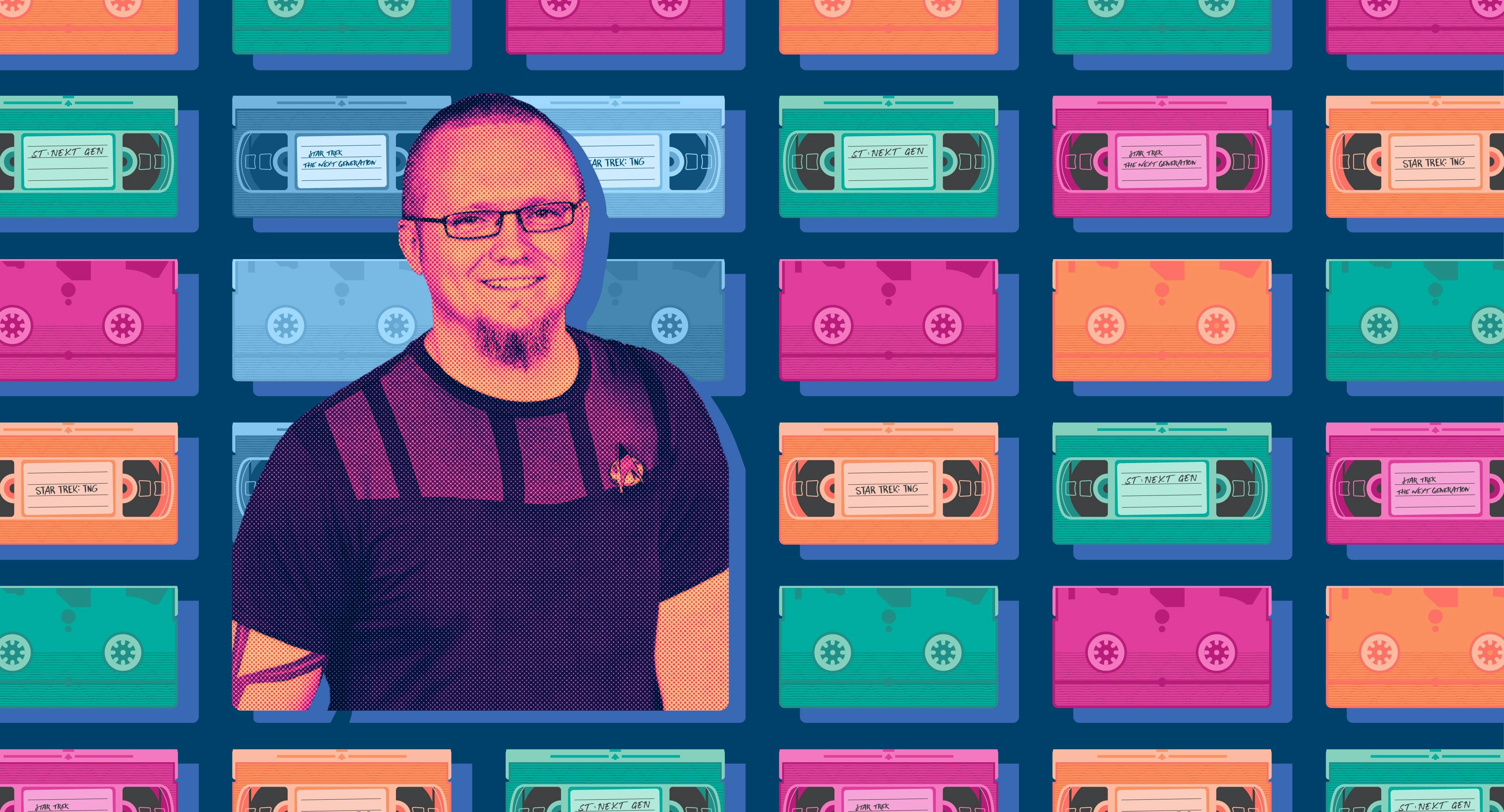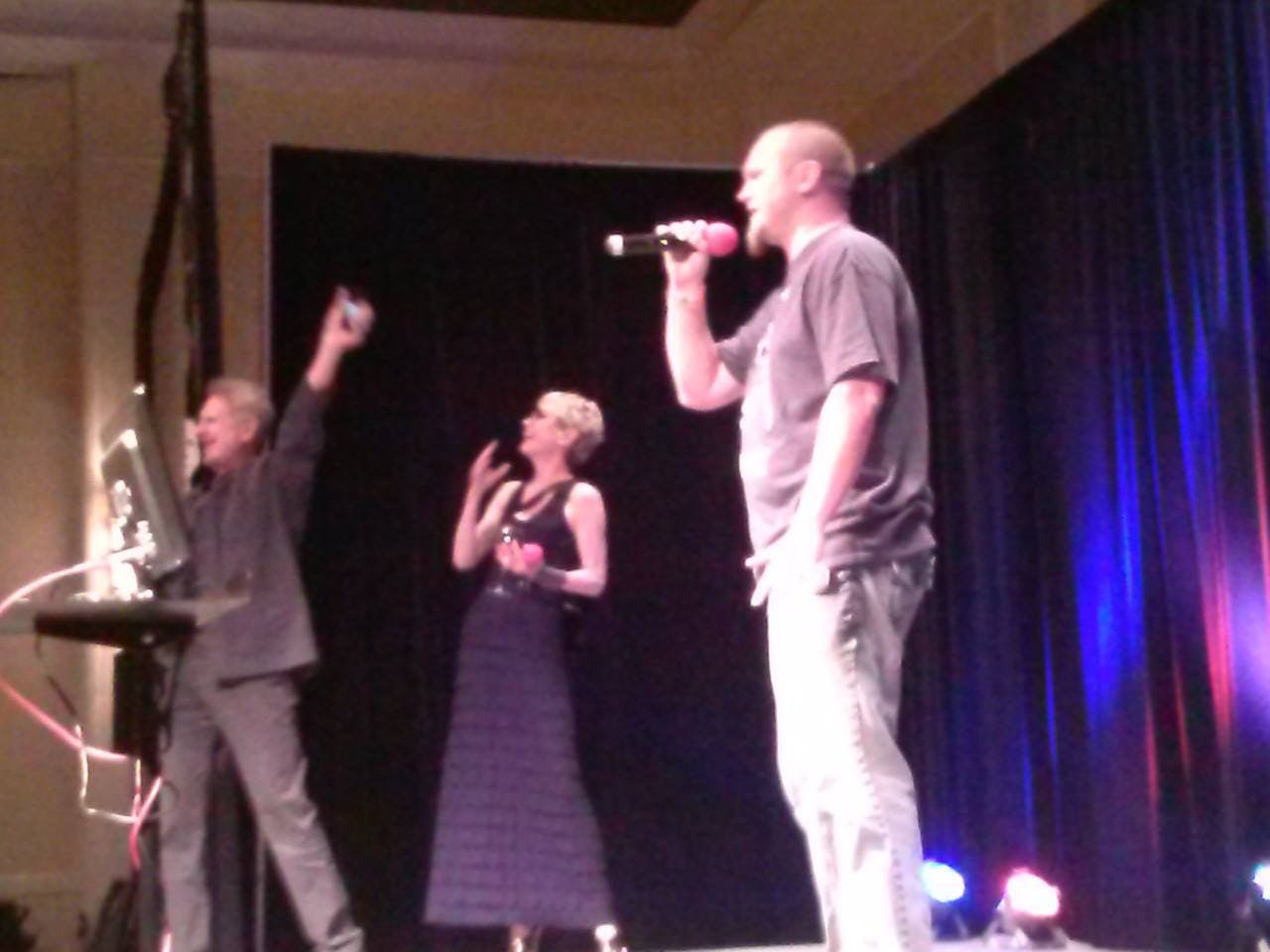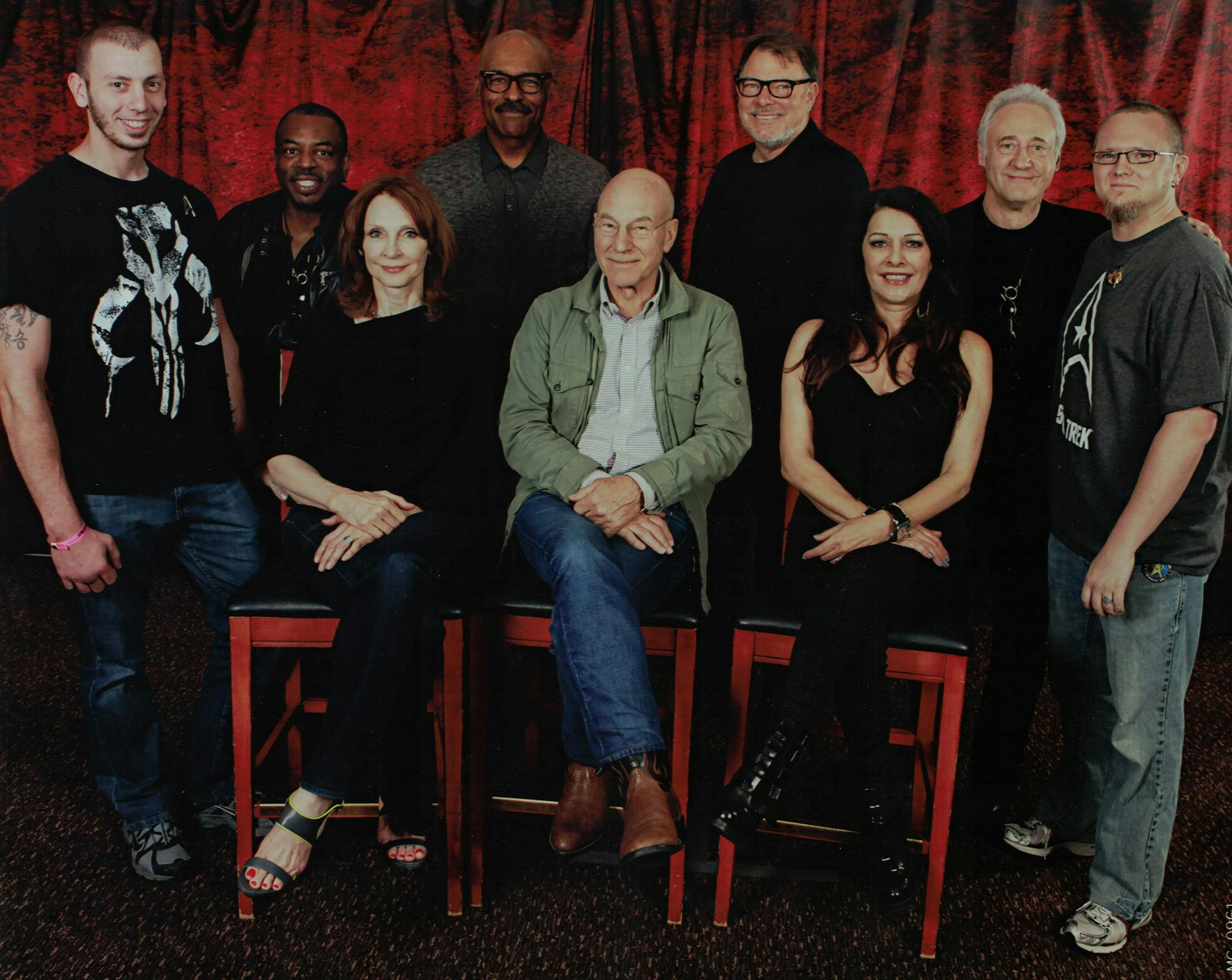Published Jan 26, 2021
Star Trek Provides Deep Connection For Fans
Star Trek super fan Gabriel Matthews talks about the sense of belonging he finds in the series and its supporters.

StarTrek.com
Like any other Star Trek fan, Gabriel Matthews is hooked on the fun of it all. He’s well-versed in several series, read numerous books, and attended multiple conventions. He calls the Klingon Dictionary a “tough read,” has enjoyed breakfast with Nana Visitor (Kira Nerys from Deep Space Nine), and even sang late-night karaoke with René Auberjonois (Odo, also from Deep Space Nine).
Beyond the entertainment value, however, Gabriel says his fandom is built upon a deeper connection. It’s found in the throughline of Gene Roddenberry’s hopeful vision for humanity and the way Star Trek, via any iteration, focuses on what unites more than what divides. It’s in memorable characters who allow us all to relate, and it works its way out in the gatherings of other fans who provide a place to belong.
When he’s not putting in hours as a cloud computing engineer, Gabriel is a father of four and enjoys playing guitar, nature photography, riding his motorcycle, and playing video games. That, of course, includes Star Trek Online. We recently asked him more about his history with Star Trek and how his fandom has provided hope along several stages of his life.
StarTrek.com: How did you first get hooked on Star Trek?
Gabe Matthews: I grew up on Next Generation. My dad recorded episodes on VHS tapes. I have a real clear memories standing in front of my dad's entertainment system with two cabinets on each side with all these tape libraries and they all said "Star Trek: Next Generation". He didn't put episode titles or anything. He would just record as many as he could on a single tape and then go onto the next one. When I'd get to stay home from school, I'd grab a random tape and hit play. I didn't get into The Original Series until much later.

StarTrek.com
What was it about the series that meant so much to you then — or even now?
GM: Growing up, Star Trek has always been something I could turn to that was a positive distraction. I don't think I really understood when I was a kid why I enjoyed it so much. It was just fun, entertaining sci-fi. But over time, especially in a year like this one, you absorb a lot of news that's negative. From time to time, I'll go back and watch Star Trek and realize how refreshing it can be.
You take in the negativity from the news on your way to and from work and come home grumpy. Then you want to escape a bit. I may not see society going how I would want, but the vision here with Star Trek is for something better. This is humanity at its finest when we've moved past so much that we're stuck in now. That really appeals to me—that hope for something that's better than what we take in through the news every day.
Do you have a favorite character overall or from TNG?
GM: Data is my favorite.
What was it about Brent Spiner's character that drew you to him?
GM: Growing up, I struggled with emotions, as I'm sure most kids do, and for some reason his non-emotional self was always appealing to me. Spock is kind of similar, and while I do love Spock, Data just appealed to me more, probably because I've always liked computers and such. Plus, Brent Spiner really played that role well, made me laugh a lot at his attempts at humor. I usually think I'm a pretty funny guy myself, but often my jokes are pretty bad and I feel like Data at the stand-up comedy show, waiting for the laughter and none's a-comin'.
One of the things I noticed as a kid — and I'm sure this is smartly designed by those who write TV shows — is that there tended to be at least one character who embodied a certain type of personality or emotion or whatever. Worf was the warrior. Troi was the empath. Picard was the leader. You could typically associate yourself with one or more of them with whatever you're going through. You could relate to Worf on some days, and Troi on other days. I always thought that was probably some kind of trick to make TV shows relatable.
With Data, what always stuck with me was how relatable he was when he tried to fit in as a human. He wants to be something that's obviously different, and even inferior, to what he is, but he wants to fit in. There's beauty in changing who you are to become something different, even if it's not as perfect. There were a lot of episodes that showed his struggles of trying to fit in or to find a sense of humor and never really executing it. That always spoke to me. In high school, I didn't fit into any one category. I didn't need a lot of friends, so his struggles resonated with me a lot.
Have you ever met Brent?
GM: I haven't. Well, I took a picture with the cast and stood next to him. I made a joke that Brent Spiner was privileged to put his hand around my waist when we took the photo.

StarTrek.com
In one convention, he came out and did this Q&A. I didn't go to ask him anything, but one woman who did got up and said her name. He stopped her and recognized her name and where she was from. She said, 'What?' He said something like, 'You were in a production of My Fair Lady a few years ago.' It was something like that. But he was right. He'd remembered her from seeing her at a musical three or four years before. I just remember her standing there with her jaw dropped as he talked about her for a few minutes and then said, 'What's your question?' Everyone was like, 'Who is this guy? He actually remembers his fans! He really is Data!' It was neat to see he cares so much and to compliment her. That was really cool. That wasn't with me personally, but it was neat to see.
You've been to a couple official Star Trek conventions. Are those a welcome haven for you?
GM: When I've been around groups of people that I knew were Trekkies, or you see them with a t-shirt on or you go to a convention where they're everywhere, as soon as I walk in, I instantly feel like I belong. I don't feel that way anywhere else.
Growing up, I was always just odd and never really fit in with any specific group or "type" of people. Even as an adult, I don't keep many friends and I often struggle to know where I fit in within social circles. When I've gone to a Star Trek convention, I'm amazed at how well I blended in. People were dressed up, of course, and it was quite a spectacle, but everyone was also incredibly accepting and kind. I could tell instantly that many of them probably also had troubles fitting into 'normal' society, but when they all got together, everyone just felt like they were with family. It's where they belong, with their fellow nerds and geeks.
STLV Looking Back - The Cosplay Parade
I think Star Trek, for me at least and many others I've met and talked to, is about connection. They don't know how to connect with others—maybe how their family or co-workers do—and so they're kinda lost. There's a story of hope for a better future, a better picture of what humanity can be, and we gravitate to that positive message. And then when we're there, we find others like us who also want the same thing. We find inclusion in a mismatched hodge-podge of fellow humans, and we feel like we belong.
Matt Conner (he/him) is a freelance writer/editor living in Indianapolis.

